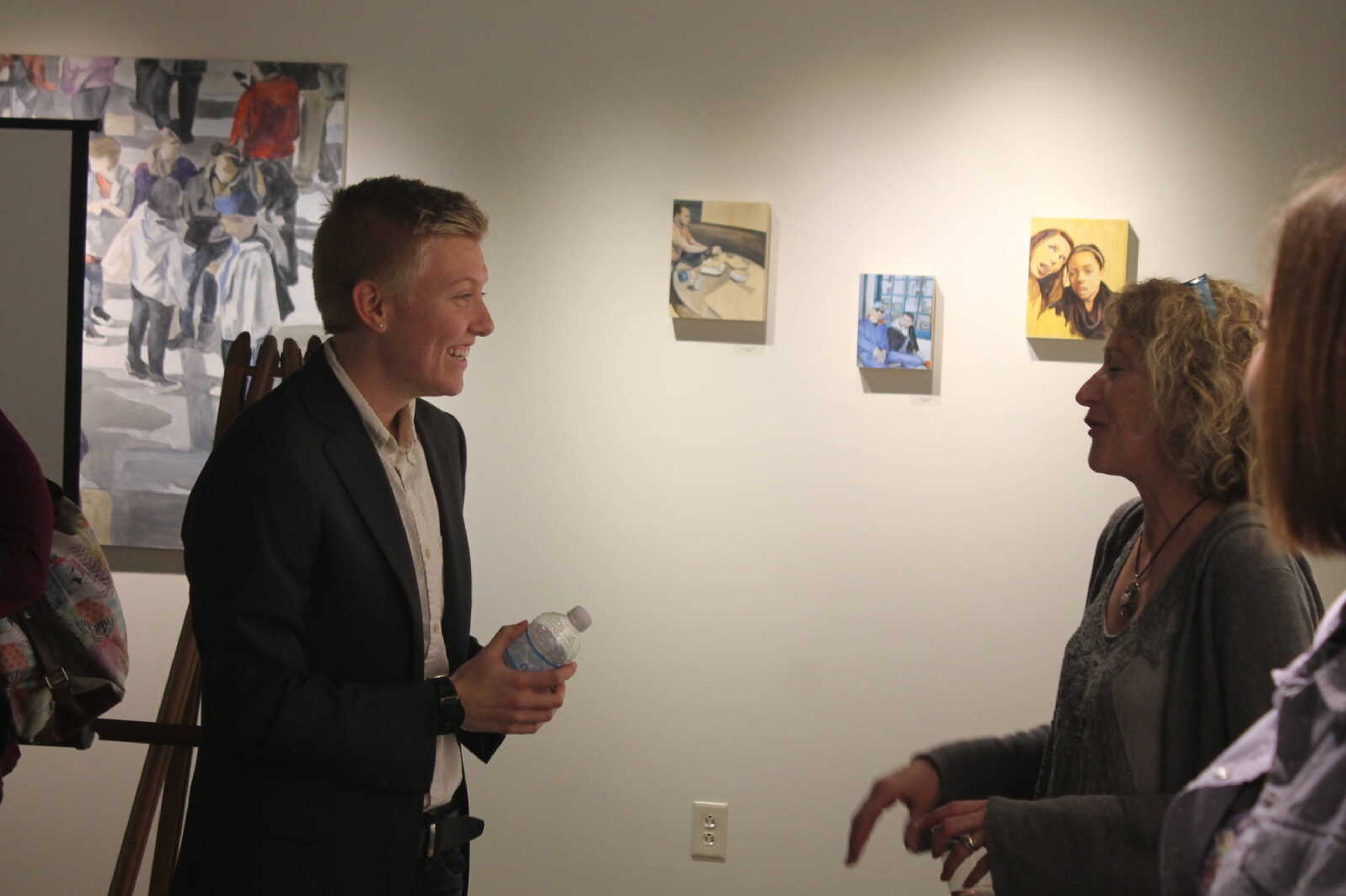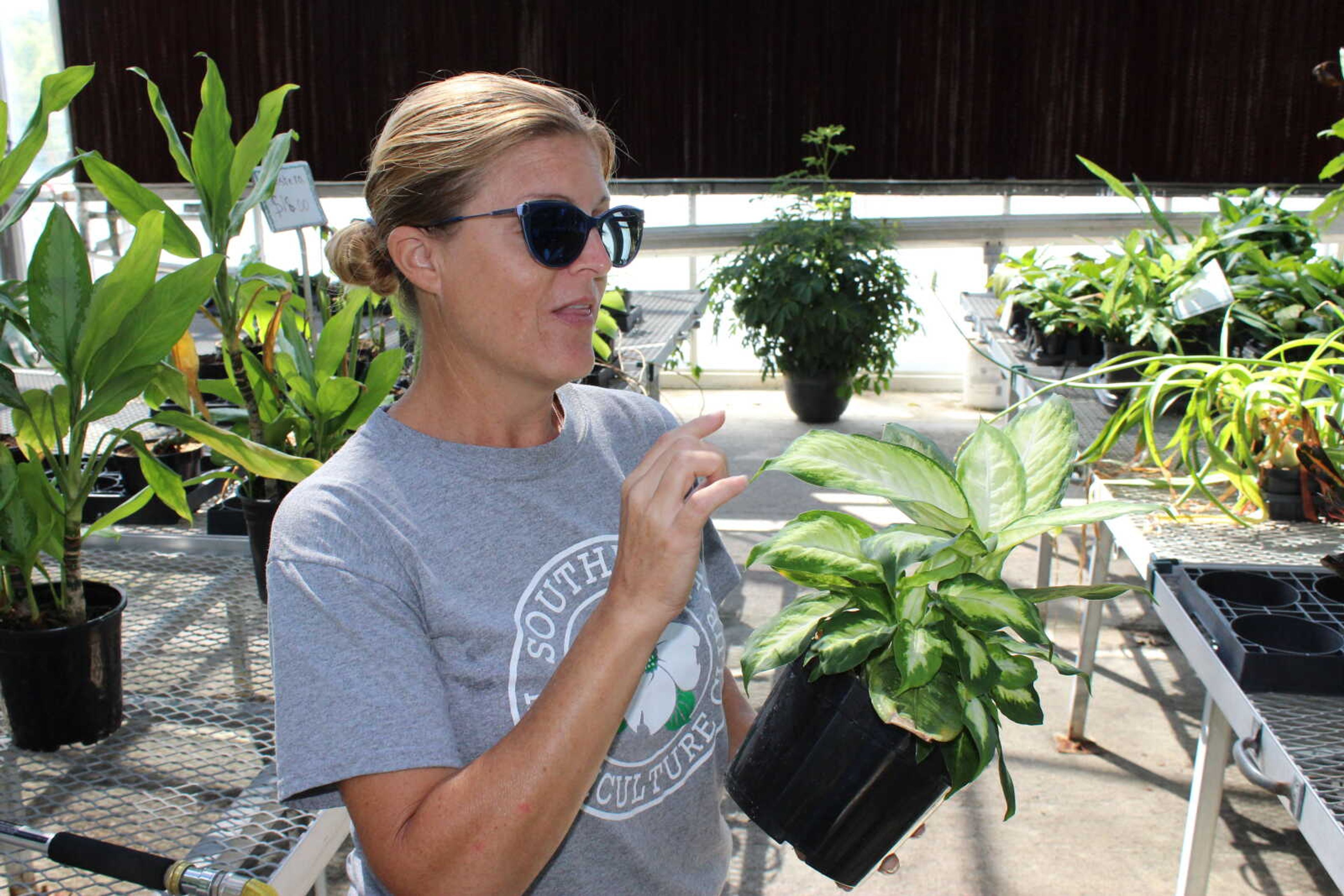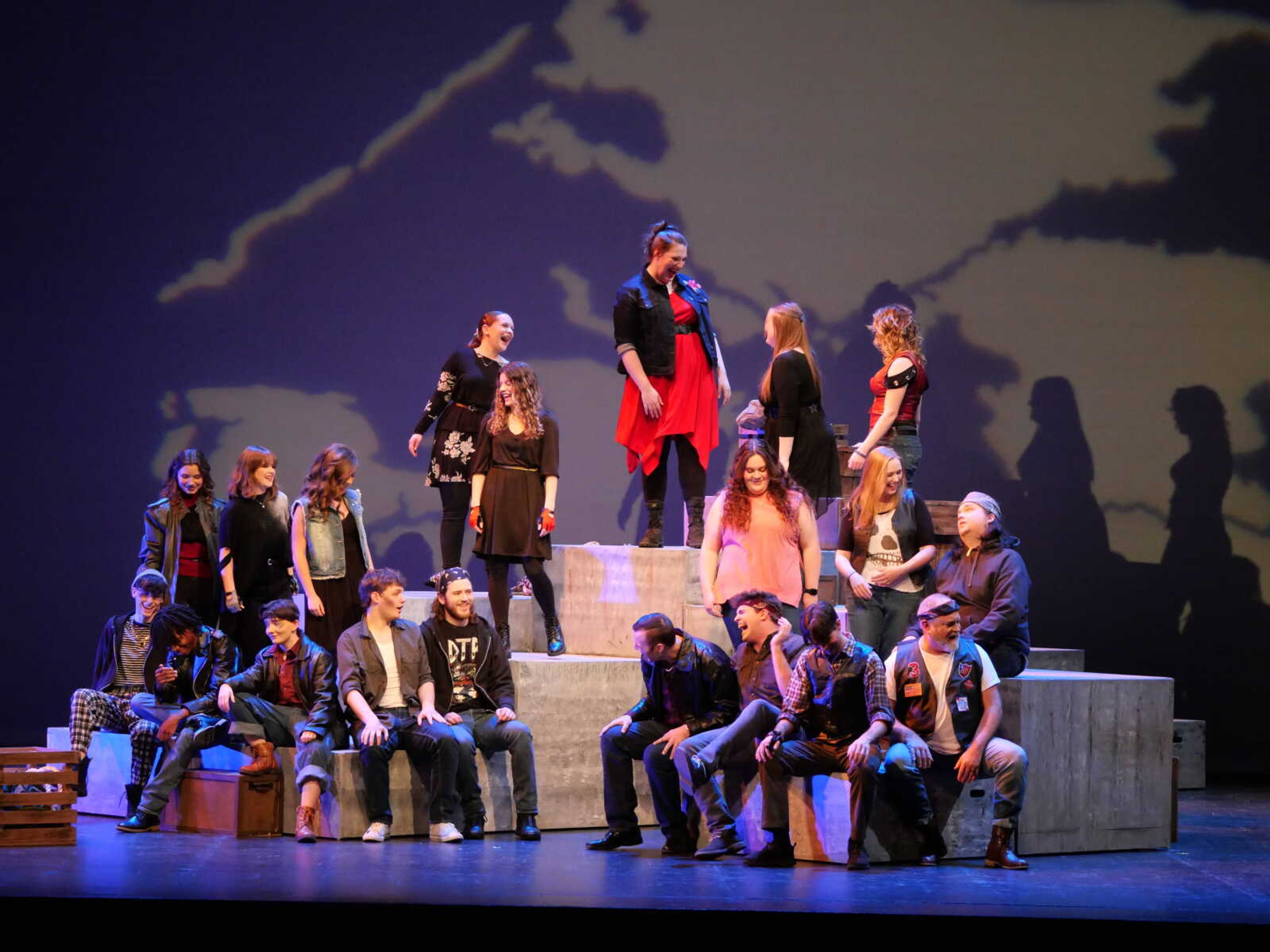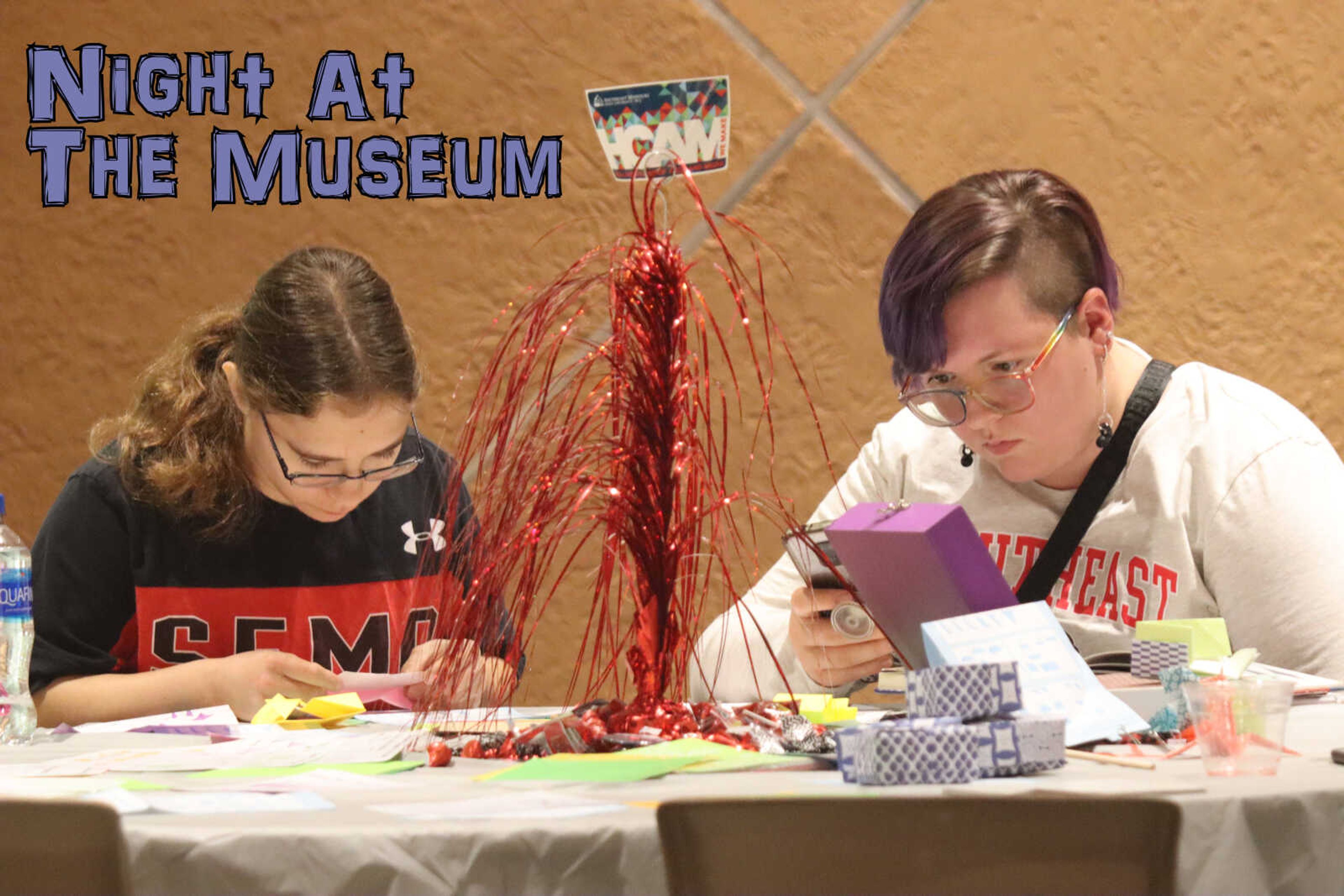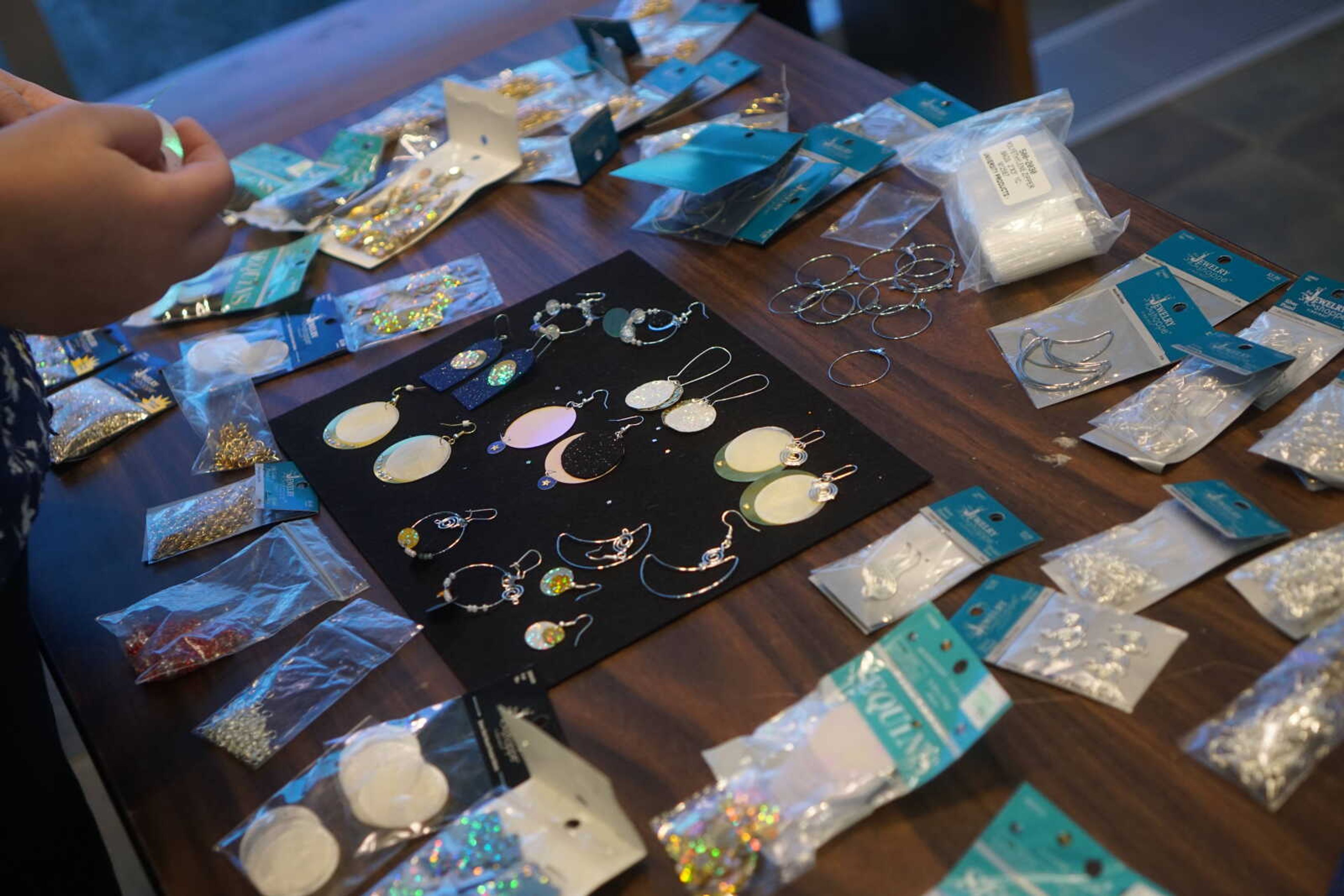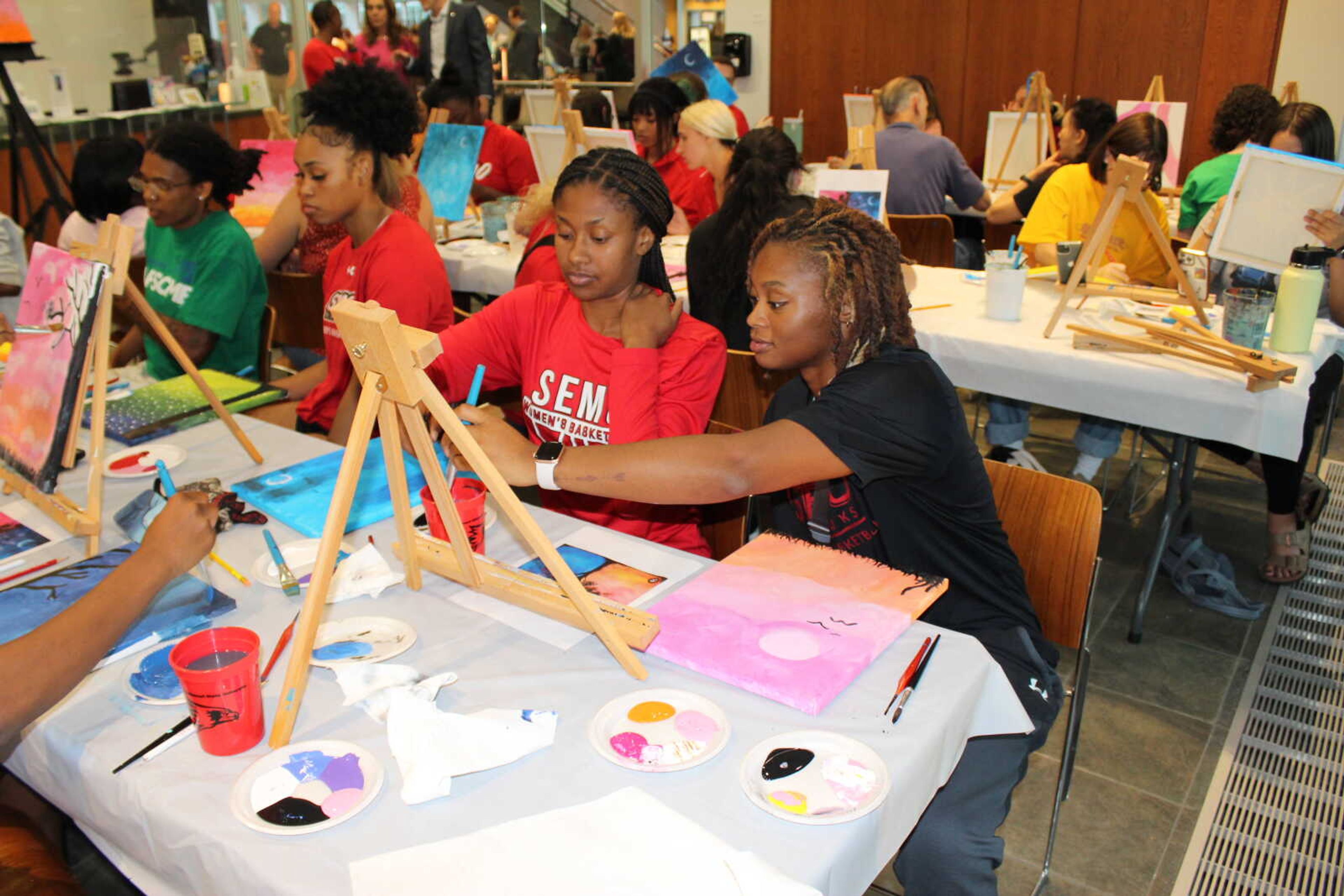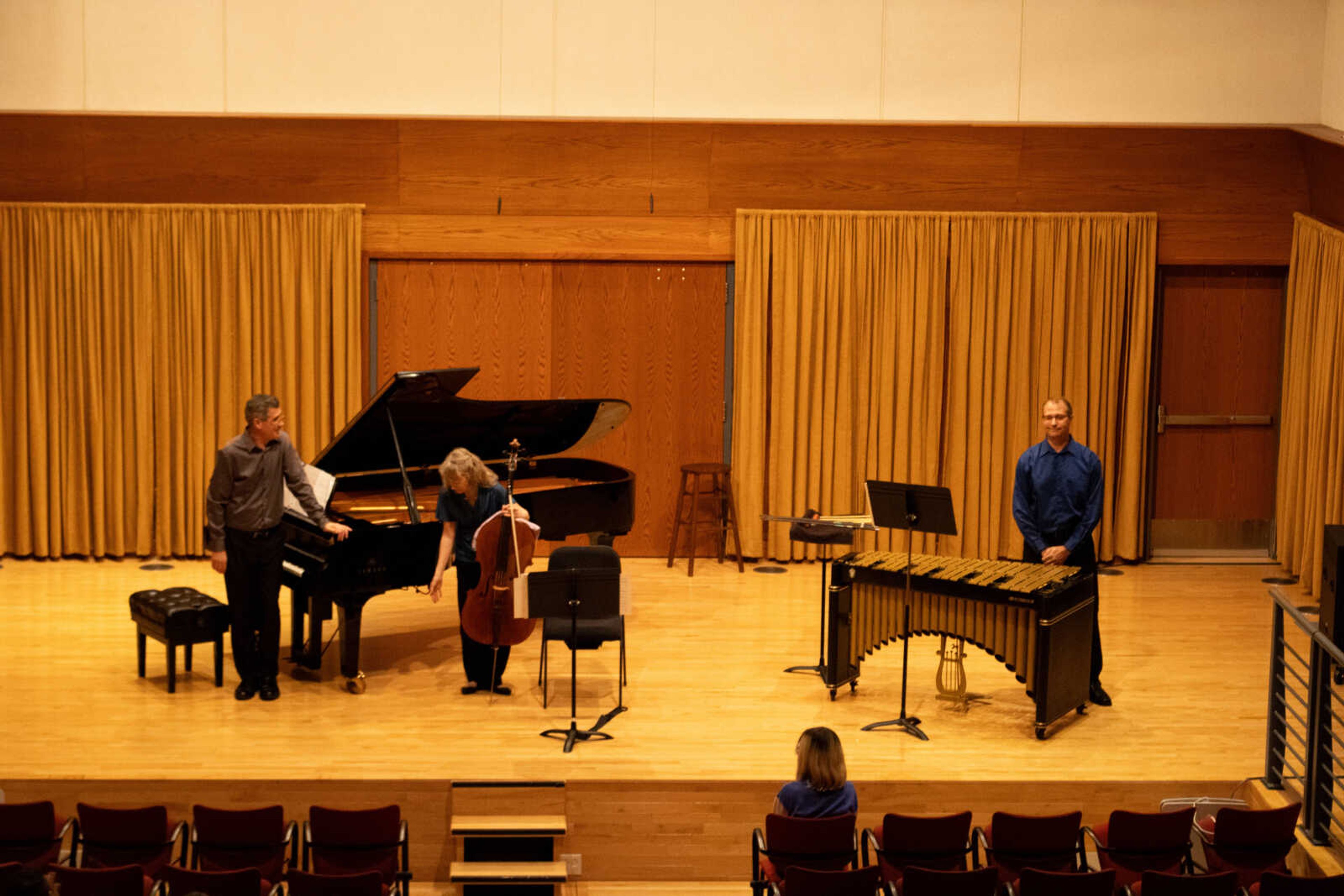The Arts Council of Southeast Missouri hosted a discussion as part of its Red Light Night series, called “Break the Binary,” featuring Rane Belling, a Southeast student with a story to tell.
Red Light Nights are discussions on controversial topics within the arts, usually presented by guest lecturers and panelists, and are intended for a mature audience, according to the Arts Council website. The series takes place at 7 p.m. on select Thursdays.
Belling is a senior and communication studies major at Southeast Missouri State University, who identifies as transgender. Belling, the president of Southeast’s student organization PRIDE, talked about the success of the Ask Me About My Pronouns event, which happened in February on Southeast’s campus.
As the audience of nearly 30 found their seats, Belling began talking about the importance of using pronouns correctly in accordance with a person’s identified gender.
On each side of Belling was a large box, one pink and one blue. Belling said the boxes represented the ways society can force a person’s identity into a gender that is more commonly understood, but not always correct.
“Not all of us who are born female identify as women and use she or her pronouns,” Belling said. “Gender is more complex than that.”
Belling wanted to make sure those in attendance understood that gender is a spectrum and not the same as a person’s sex.
Belling said preferred gender pronouns are what a person chooses for him or herself and it gives that person a sense of belonging in society. The pronouns a person uses are not always familiar to society but change with the evolution of language.
“Asking someone for their preferred gender pronouns and putting in the effort to use them is
an act of kindness, respect and acceptance,” Belling said. “It’s OK to make mistakes.”
Belling’s preferred pronouns are they and them, but can differ depending on the relationship they have with whom they are speaking.
At the conclusion of their presentation, Belling opened up the floor for discussion and took questions. The discussion went on for more than 20 minutes following Belling’s presentation, as many in attendance had questions or comments about how to be supportive of the LGBTQ+ community.
“I think just not getting upset with people for messing up is the most important thing,” Belling said. “And responding to hate with love, always.”
Students are encouraged to attend PRIDE meetings at 7 p.m. on Wednesdays in the Center for Student Involvement at the University Center.
For more information on Red Light Nights or the Arts Council, visit http://www.capearts.org.
